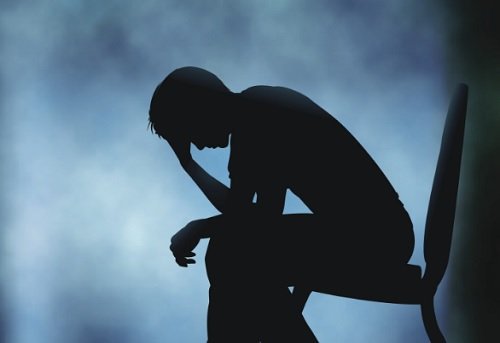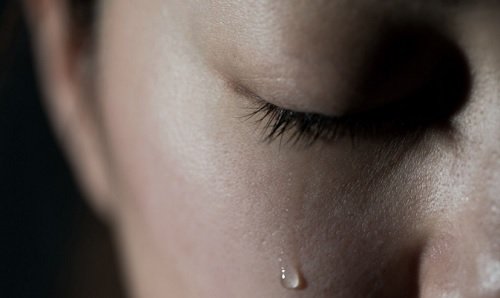What are the Physical Effects of Sadness on the Body?


Reviewed and approved by the pedagogue in physical education and nutritionist Elisa Morales Lupayante
Has there ever been a time when you’ve felt listless and sad? Have you ever felt the pain of being rejected?
Sometimes, it can feel like sadness doesn’t make you stronger at all. In fact, it can seem like it’s eating away at you bit by bit.
What’s certain is that emotions can put a huge strain on your health, as confirmed by this study carried out by the “Las Villas” Central University in Cuba, which states that emotional imbalance can increase blood pressure.
Today, we want to explain what the physical effects of sadness are. We’ll also show you some of the different ways you can combat it, so that you can carry on with your life.
The Effects of Sadness on the body

When you feel down, the circuits in your brain for physical and emotional pain overlap.
This doesn’t just happen in the areas of your brain that are related to the purely physical component of pain, but also in areas related to your somatic perception.
This triggers a negative impact on your body, especially on your immune system. This could potentially increase your risk of disease, particularly inflammatory diseases, as shown by this study by the Valencia Polytechnic University.
It affects your perception of temperature
It is also believed that sadness can increase your sensitivity to cold, even while people around you feel warm.
However, there are no scientific studies to support this claim.
It affects your appetite

According to this report from the Health Department of the Government of La Rioja, sadness can also affect your appetite, increasing the risk of dangerous changes in weight.
The direct result is that it can lead to problems with your blood pressure, such as light-headedness caused by lack of eating, as confirmed by this study published by the Medical Journal of Chile, or an increase in cholesterol levels due to the consumption of junk food, as shown in this study carried out by the King Saud University. Furthermore, it can also cause cardiac problems in the long term, as we shall discuss later in this article.
It increases stress
Sadness also affects the hormone known as cortisol. This is important for controlling blood sugar and blood pressure levels, as well as the quality of your sleep.
All of this means that sadness is one of the most harmful emotions for your health. It has even been linked to heart disease, as demonstrated in this study by the University of Caldas in Colombia.
Both stress and depression can increase the likelihood of developing a serious illness. If you’re stressed or extremely sad, you may notice that nothing seems to function properly.
Your defenses are down and your risk of falling ill increases considerably, according to this investigation published by the Chilean Journal of Neuro-Psychiatry.
What’s the solution? It isn’t stress that’s causing problems with your immune system, but rather the perception that you can’t do anything to stop it.
Read:
Your brain needs more energy
It might seem unusual to think that your brain is more active when you’re sad. According to the US National Institute of Mental Health, feeling tired is a common side effect of depression.
This could be because you feel the need to search for solutions to whatever you’re feeling, or whatever problem you’re facing. That said, there are no studies to confirm the idea that your brain works harder when you’re feeling sad or depressed.
Decreases serotonin levels
When you feel sad, serotonin levels drop. In the medium and long-term, this decrease can affect your health. According to this study published by the Chilean Review of Neuro-Psychiatry, anti-depressive medication is designed to limit the effects of decreased serotonin levels.
You need to cry

Believe it or not, crying can make you feel better. When you feel sad, your brain builds up too much stress and anxiety, and you need to find away to release those emotions.
Crying is the perfect way to relax and let out everything that you’re feeling. After doing so, your brain will begin to secrete endorphins that will make you feel more relaxed, according to this study by the University of Tilburg in Holland.
That’s why it’s important that when you feel the desire to cry, don’t resist. Let it out and it will help you feel better.
Some people choose other activities that also generate endorphins.
The physical effects of sadness on your health can be extremely negative. You may not always feel good, but you can find alternatives to help ease tension.
All cited sources were thoroughly reviewed by our team to ensure their quality, reliability, currency, and validity. The bibliography of this article was considered reliable and of academic or scientific accuracy.
- Yang L, Zhao Y, Wang Y, et al. The Effects of Psychological Stress on Depression. Curr Neuropharmacol. 2015;13(4):494–504. doi:10.2174/1570159X1304150831150507
- Yaribeygi H, Panahi Y, Sahraei H, Johnston TP, Sahebkar A. The impact of stress on body function: A review. EXCLI J. 2017;16:1057–1072. Published 2017 Jul 21. doi:10.17179/excli2017-480
- Lokko HN, Stern TA. Sadness: diagnosis, evaluation, and treatment. Prim Care Companion CNS Disord. 2014;16(6):10.4088/PCC.14f01709. Published 2014 Nov 20. doi:10.4088/PCC.14f01709
This text is provided for informational purposes only and does not replace consultation with a professional. If in doubt, consult your specialist.








